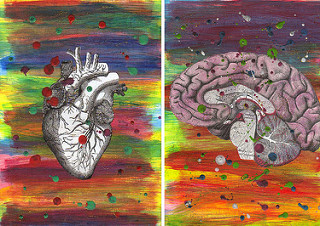Did you know that recently there was invisible illness week? A public campaign to raise awareness of the struggles of people who don’t live with a physical or obvious disability, and this can be for those as wide ranging as asthma, diabetes, autism, and also includes those with mental health conditions: anxiety and depression, to name a few.
This article is on a matter very much related to illness, and very personal to myself and many others, maybe even you.
This week has been raising many issues within the online community, one of which is organ donation. At the moment we have an “opt in” system, that is to say, nobody is going to take your organs when you die unless you sign up to become a donor. Many people argue that it should be an opt-out system, where everyone’s organs are available unless they state otherwise.
While I understand people don’t like the idea of being ripped apart when they die, and everyone should be given a choice to decide what’s done to their body, I think this is a brilliant solution to the organ donor shortage.
My grandmother, who passed away earlier this year, was an organ donor. Unfortunately, because most of her organs were damaged after a cardiac arrest, they couldn’t be used. The doctors were however able to take her corneas (the outer layer of the eye) and this was used to cure someone’s blindness. I consider that rather amazing, the quality of life for that one person will be transformed, despite our loss it was able to do some good. This gave my grandpa and my mum some peace, too.
People would still be given a choice with an opt-out system, all that you need to do is sign a form and say you do not wish to be a donor, and no questions asked, no one is going to force you.
I respect that for cultural or religious reasons, this may not be something you wish, and that is okay I’m not having a go at you. Everyone has a choice.
The amount of lives this could save is huge; in the UK alone, three people die every day who are in need of an organ donation. 10,000 people are on the waiting list, and so far this year already over 5,000 have been saved. The benefits and increased quality of life for patients after transplants can’t be expressed by numbers alone.
I live with cystic fibrosis, which one day could cause such significant lung damage that I too will have to go on to the transplant list. The stories that I read about frighten me, telling of agonising waits, while their body slowly and surely fails them and their health deteriorates. They struggle to walk, breathe, function and live their usual life. But I can’t live in fear.
Hopefully that is a long way off for me, and besides I feel healthier than ever lately. However, while I sit here and feel grateful and lucky to be alive, there are plenty who are still waiting, still hoping for that call to say “we’ve found you a match, you’re going to live again!”
I think organ donation is an important issue, for anyone reading this and not only for those with particular health conditions. If you’re ever in an unlucky enough situation that you are in a serious car crash, or an unexpected sudden illness, you may well find yourself in desperate need of new organs. You never know what complications life will throw at you.
I believe becoming a donor is a fairly simple decision. There are no painful procedures involved (unless you count post-mortem dissection) no big needles like when giving blood or donating bone marrow (though I recently learnt they only use a tiny needle for this!) So the biggest issue I consider when deciding to become a donor, is whether or not you want to be stripped of your body after you die (you could also become a living donor, but this is a riskier decision and one I won’t go into).
The way I see it, it’s a valuable advantage of modern science and technology. We may well be playing God, but I personally can’t possibly deny someone a new chance in life, to live again and be happy. Once I’ve stopped breathing, my heart has stopped beating and brain stopped working, I have no use for my body. Other people are welcome to me! And if my lungs are damaged, there’s still plenty of me to go around. The average donor can save up to 9 lives. And if not for saving a life, bodies can also be donated to science for curious medical students to gawk at!
Filling out a form online takes just two minutes! Two minutes and you can save a person’s life. Sounds pretty good to me.
Chloe Kazantzis
Image by Soffie Hicks



